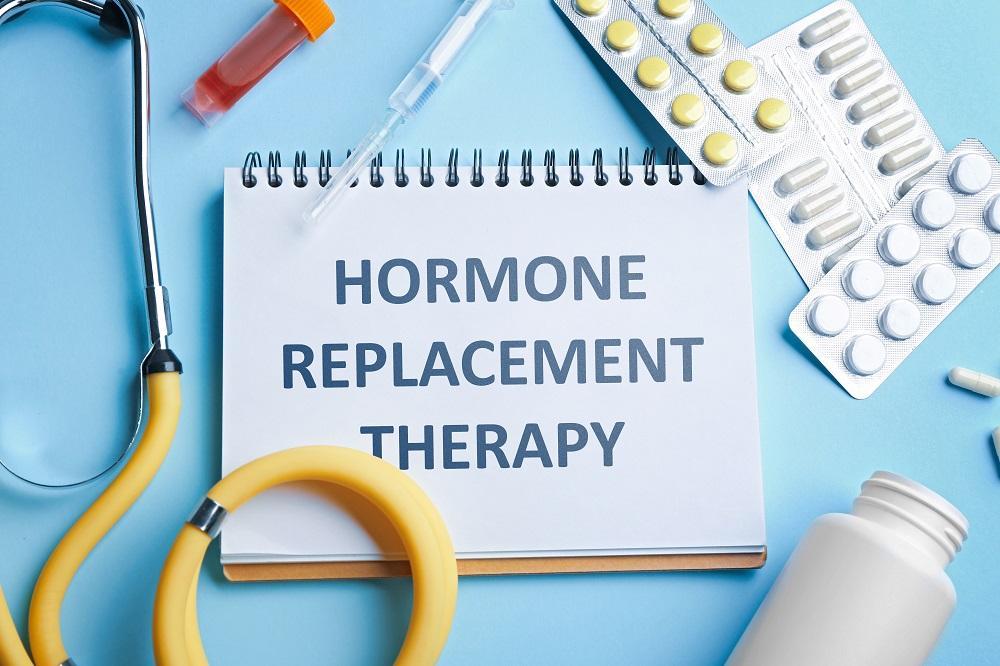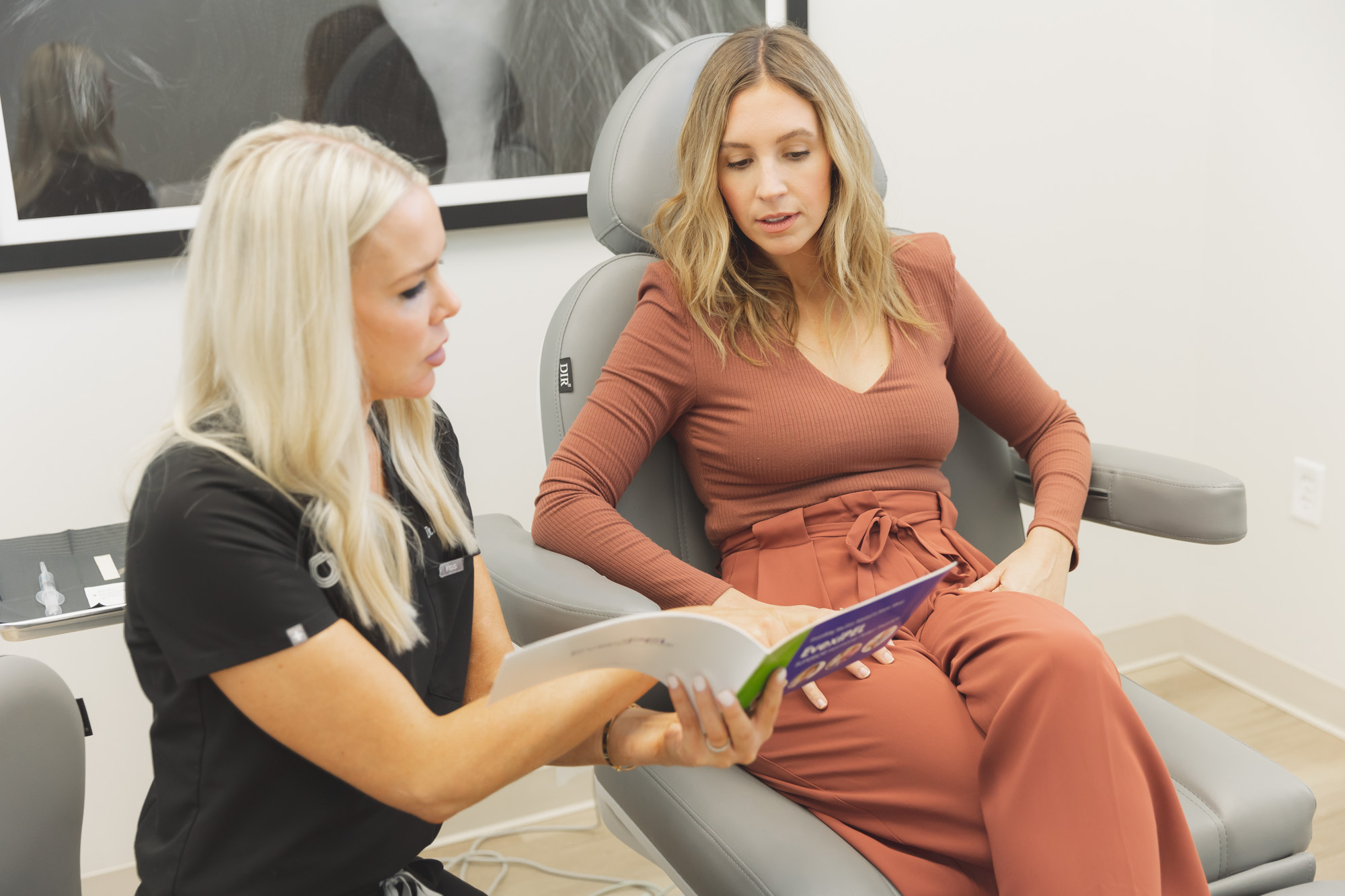Hormone Replacement Therapy for Menopause: Improving Top Quality of Life
Hormonal Agent Substitute Therapy (HRT) represents a substantial intervention during menopause, dealing with different incapacitating symptoms that can adversely influence a woman's high quality of life. The choice to take on HRT is complex, including benefits, risks, and individual wellness factors to consider.
Recognizing Hormone Replacement Therapy
Hormone Substitute Therapy (HRT) is a clinical therapy developed to alleviate the signs associated with menopause by renewing estrogen and progesterone degrees in the body. This therapy aims to attend to different menopausal signs and symptoms such as warm flashes, night sweats, state of mind swings, and genital dryness, which can significantly affect a lady's quality of life. HRT can be provided via numerous paths, including oral pills, transdermal patches, gels, and genital lotions, enabling individualized therapy choices based on specific demands and preferences.
HRT is generally classified into two main types: estrogen-only therapy and mixed therapy, which consists of both estrogen and progesterone. The choice of therapy relies on numerous factors, consisting of whether a woman has actually undergone a hysterectomy. While HRT can offer effective sign alleviation, it is important for patients to speak with medical care experts to go over prospective risks and advantages, including the possibility of negative effects and the impact on long-lasting health end results. By understanding the basics of HRT, women can make informed choices regarding their therapy alternatives throughout the menopausal shift, leading to enhanced monitoring of signs and symptoms and overall wellness.
Advantages of HRT for Menopause
Several women experiencing menopause look for reliable services to handle their symptoms, and Hormone Substitute Therapy (HRT) provides a variety of benefits that can dramatically improve their lifestyle. HRT helps relieve common menopausal symptoms such as hot flashes, evening sweats, and mood swings, providing relief that allows women to restore comfort and security in their day-to-day lives.
Along with sign monitoring, HRT can help reduce the decrease in bone density related to menopause, decreasing the danger of osteoporosis and fractures. This is especially essential as women age, adding to long-term health and wellness and mobility. Additionally, HRT has actually been shown to improve rest patterns, enhancing overall well-being and power levels.
Research study additionally indicates that HRT might have a favorable influence on cognitive function, possibly lowering the danger of memory decrease and cognitive problems in postmenopausal women. By resolving both physical and emotional elements of menopause, HRT can foster a better sense of vitality and empowerment during this transitional stage of life. Eventually, the benefits of HRT extend past sign alleviation, promoting an all natural technique to health and wellness and wellness in menopause.

Prospective Risks and Side Effects
While Hormonal Agent Replacement Therapy (HRT) can supply substantial advantages for handling menopausal symptoms, it is vital to evaluate these advantages versus the possible threats and adverse effects that might go along with therapy. Among the most remarkable issues is the enhanced threat of cardio events, including cardiac arrest and strokes, especially in older females or those with preexisting problems. Furthermore, HRT view has actually been connected with an increased threat of specific types of cancer cells, such as breast and endometrial cancer, depending on the kind and period of hormone therapy made use of.
Other side impacts may include stomach disruptions, frustrations, mood adjustments, and bust tenderness. Some females might likewise experience fluid retention and bloating, which can be unpleasant. In addition, HRT may not be ideal for women with a background of hormone-sensitive cancers or particular health conditions, necessitating mindful screening and examination with a healthcare supplier.
Offered these considerations, it is critical for ladies considering HRT to engage in a comprehensive discussion with their health care expert, making certain an informed choice that balances the possible advantages with the linked dangers and adverse effects.
How to Select the Right Therapy
Selecting the ideal therapy for handling menopausal symptoms needs careful consideration of individual wellness accounts and requirements. Females experiencing menopause needs to take part in a thorough conversation with their doctor to analyze their signs, case history, and personal choices. Aspects such as age, the extent of symptoms, and existing wellness conditions, consisting of cardiovascular health and wellness, bust cancer cells history, or hormone-sensitive problems, play critical roles in therapy choice.

It is also necessary to take into consideration the duration of therapy and the person's desire to keep track of and readjust therapy as essential. Regular follow-up appointments can assist review the therapy's efficiency and attend to any type of emerging worries. Ultimately, the selected therapy must align with the lady's wellness objectives, guaranteeing a well balanced technique to boosting high quality of life throughout menopause.
Way Of Life Adjustments to Boost HRT Results
Implementing particular lifestyle modifications can considerably improve the performance of Hormone Substitute Therapy (HRT) for menopausal females. A well balanced diet regimen abundant in fruits, vegetables, entire grains, and lean proteins not only sustains total health original site however can also reduce some menopause signs, such as weight gain and mood swings. Incorporating phytoestrogens, found in foods like soy and flaxseeds, may additionally complement HRT.
Routine physical activity is another important part. Involving in exercise, particularly strength training and aerobic tasks, can enhance state of mind, promote weight monitoring, and improve bone thickness, responding to weakening of bones threats connected with menopause. Additionally, tension management methods, such as yoga and meditation, can alleviate psychological signs and symptoms and boost general health.
Sufficient rest is important; establishing a consistent rest regimen and producing a relaxed atmosphere can assist combat sleeping disorders, an usual concern during menopause (hormone replacement therapy Abilene TX). Limiting high levels of caffeine and alcohol intake can likewise add to far better sleep high quality and lowered warm flashes
Finally, maintaining regular check-ups with medical care carriers makes sure HRT is changed appropriately and any type of arising health and wellness concerns are attended to timely. Together, these lifestyle changes can synergistically enhance the advantages of HRT, bring about a better top quality of life for menopausal ladies.
Final Thought
In conclusion, Hormone Replacement Therapy offers as a crucial intervention for women undertaking menopause, substantially enhancing high quality of life by alleviating signs and symptoms and advertising overall health. In addition, incorporating way of living modifications can better maximize the effects of HRT.
Hormonal Agent Substitute Therapy (HRT) represents a substantial intervention during menopause, resolving numerous incapacitating symptoms that can adversely affect a lady's high quality of life.Hormonal Agent Replacement Therapy (HRT) is a medical treatment created to alleviate the signs and symptoms connected with menopause by replenishing estrogen and progesterone degrees in the body.HRT is usually categorized right into 2 main kinds: estrogen-only therapy and mixed therapy, which includes both estrogen and progesterone.While Hormone Replacement Therapy (HRT) can supply substantial advantages for managing menopausal signs and symptoms, it is important to weigh these advantages versus the prospective risks and side results that might come with therapy.Executing certain lifestyle adjustments can considerably improve the performance of Hormonal agent Replacement Therapy (HRT) for menopausal women.